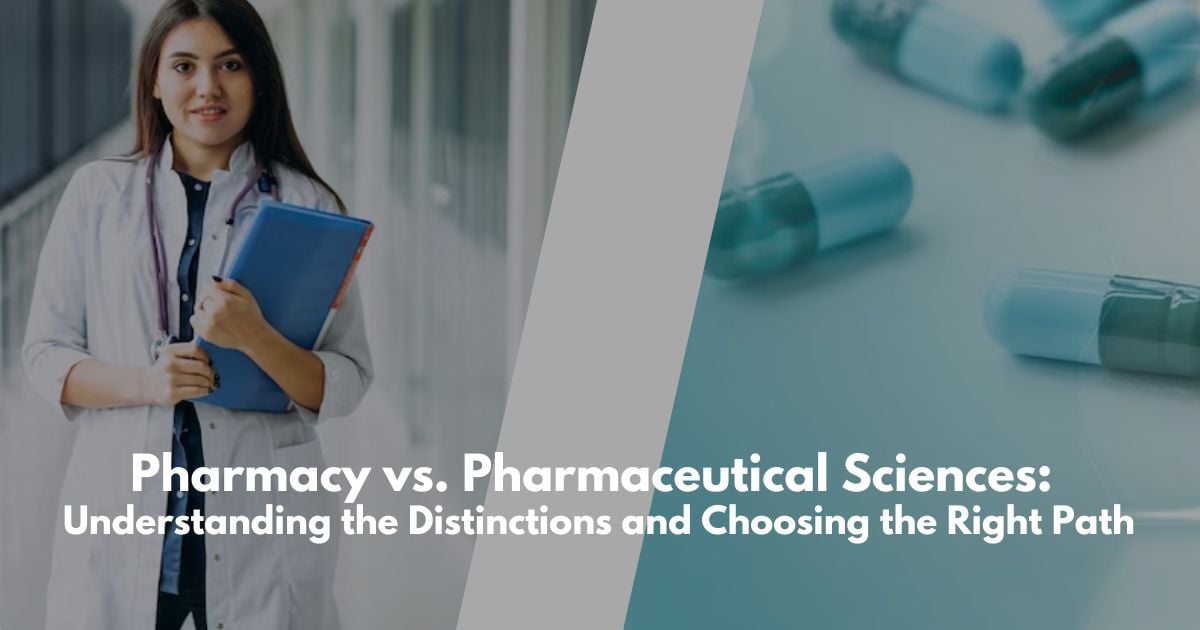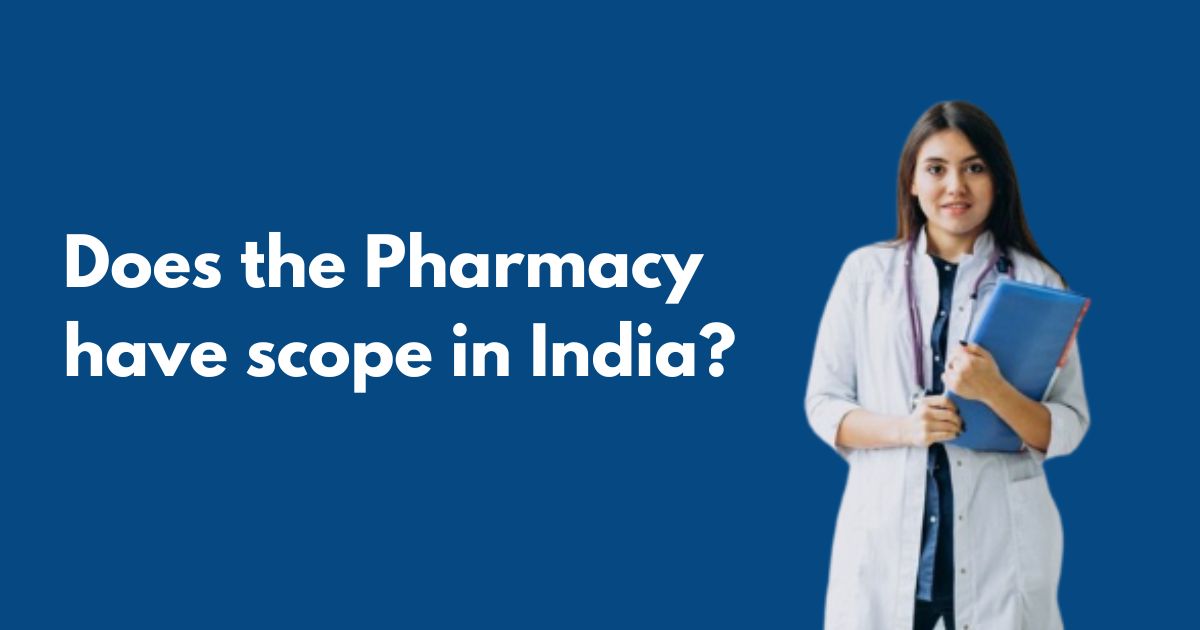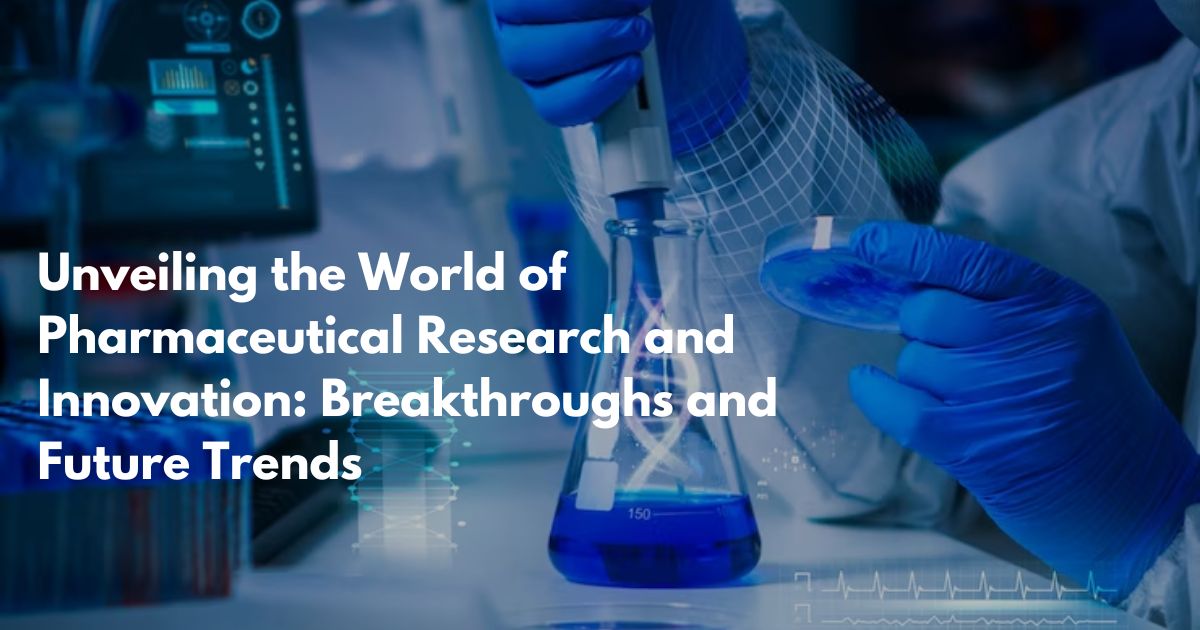Does the pharmacy have scope in India?
In the labyrinth of career choices in India, pharmacy education stands as an often underestimated yet profoundly promising avenue. Evolving from its...
2 min read
 Admin
:
Jun 29, 2023 5:20:43 PM
Admin
:
Jun 29, 2023 5:20:43 PM

As a student who has completed 12th standard with a physics, chemistry, math or biology (PCMB) stream and is considering higher studies in the field of Pharmacy, it's essential to understand the distinctions between Pharmacy and Pharmaceutical Sciences. Both fields offer unique opportunities and career pathways in the healthcare industry. In this blog post, we will delve into the differences between Pharmacy and Pharmaceutical Sciences, providing valuable insights to help you choose the right path for your future.
Pharmacy:
Pharmacy is a field that focuses on the science and practice of medication use. It involves the study of drug composition, preparation, and dispensing, as well as patient counseling and medication management. Pharmacists play a crucial role in providing patient care, ensuring the safe and effective use of medications. They work in various settings, including community pharmacies, hospitals, clinics, and research institutions. A degree in Pharmacy equips you with the knowledge and skills required to become a licensed pharmacist and actively contribute to patient healthcare.
Pharmaceutical Sciences:
On the other hand, Pharmaceutical Sciences encompass a broader spectrum of disciplines related to drug development, manufacturing, research, and innovation. It involves areas such as Pharmacology, Medicinal Chemistry, Pharmaceutics, Pharmacokinetics, and Pharmacogenomics. Pharmaceutical scientists work on the discovery, development, and evaluation of drugs, exploring their mechanisms of action, safety, and efficacy. They contribute to the advancement of pharmaceutical research, clinical trials, drug delivery systems, and formulation development.
Distinguishing Factors:
While both Pharmacy and Pharmaceutical Sciences are integral to the field of healthcare, there are distinct differences between the two:
1. Focus:Pharmacy emphasizes patient-centered care, with a strong emphasis on medication management, dispensing, and counseling. Pharmaceutical Sciences, on the other hand, focus on the scientific aspects of drug discovery, development, and evaluation.
2. Career Opportunities:A degree in Pharmacy opens up diverse career opportunities, including community pharmacy practice, hospital pharmacy, clinical research, pharmaceutical industry, academia, and regulatory affairs. Pharmaceutical Sciences graduates can pursue careers in research and development, pharmaceutical manufacturing, quality control, drug regulatory affairs, and academia.
3. Skill Sets:Pharmacy education emphasizes patient care skills, including medication counseling, patient assessment, and healthcare management. Pharmaceutical Sciences programs focus more on research methodologies, laboratory techniques, data analysis, and scientific writing.
4. Licensing and Certification:To practice as a pharmacist, you need to obtain a license by fulfilling specific requirements, including completing a pharmacy degree, practical training, and passing licensure exams. Pharmaceutical Sciences professionals may not require a license in certain roles, but specialized certifications may enhance career prospects.
FAQs:
1. Can I switch from Pharmacy to Pharmaceutical Sciences or vice versa?Yes, it is possible to switch between the two fields, depending on your interests and career goals. Additional education, training, or specialization may be required to transition smoothly.
2. Which field offers better job prospects?Both Pharmacy and Pharmaceutical Sciences offer promising career opportunities. The demand for pharmacists is high in healthcare settings, while Pharmaceutical Sciences professionals play a crucial role in drug development and research. It ultimately depends on your interests, skills, and career aspirations.
3. Is it necessary to pursue a higher degree in Pharmacy or Pharmaceutical Sciences?While a Bachelor's degree is the minimum requirement to enter the field, pursuing a higher degree, such as a Master's or Ph.D., can provide advanced knowledge, research opportunities, and career advancement options.
In conclusion, Pharmacy and Pharmaceutical Sciences are two distinct yet interconnected fields within the realm of healthcare. Pharmacy focuses on patient care, medication management, and dispensing, while Pharmaceutical Sciences delve into drug development, research, and innovation. As a student considering higher studies, it is crucial to understand the differences between the two and align your career goals and interests. Sri Aurobindo Institute of Pharmacy in Indore offers comprehensive programs in Pharmacy and Pharmaceutical Sciences, providing you with a strong foundation and opportunities to excel in your chosen field. Make an informed decision based on your passion for patient care or scientific research, and embark on a rewarding journey in the healthcare industry.
To learn more about our programs and admission procedures, visit our website or contact us today!
Note: This blog post is for informational purposes only and should not be considered as professional advice. Consult with academic advisors and professionals in the field to make an informed decision about your career path in Pharmacy or Pharmaceutical Sciences.

In the labyrinth of career choices in India, pharmacy education stands as an often underestimated yet profoundly promising avenue. Evolving from its...

Congratulations to all the students who have successfully completed their 12th standard! As you embark on the journey of higher studies, it is...

In the dynamic landscape of healthcare, the role of pharmacists has transcended from the traditional dispensing of medications to becoming integral...